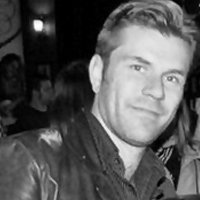Tired of all the negative news in the mainstream media? These feel-good stories from September showcase all the positive things that are happening in the world. Ed Gould shares his Top Ten round-up from the month.
There were many stories of hope and happiness in September. If you thought that feel-good news was thin on the ground throughout the late summer, then read on to discover some of the more optimistic news items which did not necessarily always get the attention they deserved.
1. Cancer blood test shows greater accuracy
Diagnosing cancers in the body at an early stage is something that all medical professionals know could lead to improved recovery rates. Thankfully, a new test has been developed which offers high rates of accuracy. According to a story in The New York Post, over 20 different types of cancer can be detected with just one procedure. Following trials at the Dana-Farber Cancer Institute, extremely low misdiagnosis rates – less than a per cent – were established in what may be a game-changer in the fight against this ever-present disease.
2. Electric van technology gets a boost
According to Autocar, the electric commercial vehicle industry has been helped thanks to a massive order from electronic retail giant Amazon. With a power source that requires no fossil fuels, the vans will be able to make deliveries without adding to global warming, so long as the electricity needed comes from renewable sources. Amazon has ordered 100,000 such delivery vehicles from Rivian, an electric car start-up company.
3. Saunas may help reduce heart disease risk
According to The Independent, a research study has found that regularly taking saunas will help to protect the heart from disease. The work, published in the BMC Medicine journal, claims that cardiovascular disease is less common among the over-50s age group if they enjoy saunas on a frequent basis. The research was conducted in Finland over the course of a 15-year period. It's not yet known why saunas seem to be so beneficial for heart health in older age. However, one researcher said that it could be tied up with the fact that taking saunas is a relaxing activity that may help to lower blood pressure.
Saunas could reduce heart disease shutterstock/Med Photo Studio
4. Smart glove may help those with Parkinson's
Although there are many research avenues into Parkinson's disease including drug therapies, a Rhode Island professor has won substantial funding for another approach: a wearable technology that may help patients control their symptoms more effectively. As reported in Parkinson's News Today, Kunal Mankodiya, an associate professor of engineering at Rhode Island University, will be able to spend up to $250,000 to develop a so-called smart glove that will help exercise regimes to be individually tailored. The funding will hopefully allow Mankodiya to turn his prototype into a workable reality.
RELATED: Feel-good news from August
5. Plastic bag usage dramatically drops in the UK
The UK government announced that its data for plastic bag usage among consumers has fallen dramatically since a small charge of five pence per bag was introduced in 2015. According to the Department for Environment, Food and Rural Affairs, the use of single-use plastic bags has fallen by 90 per cent in the last four years. The data was drawn from across all of the UK's large retailers. In an unrelated announcement also made in September, major retailer Sainsbury's said it would completely do away with plastic bags for its fruit and vegetable sales by 2025.6. Tree-planting program wins UN award
In news that will bring happiness to anyone concerned with the destruction of the globe's ancient forests, a Chinese company, Ant Financial Services Group, has won praise for planting approximately 122 million trees in some of the country's driest areas. The United Nations Environment Programme said in September that the so-called Ant Forest green initiative in China had won its Champions of the Earth award for 2019.

Chinese forest and lake shutterstock/Efired
7. Breakthrough technology allows blind people to perceive light
In feel-good news that will be welcomed by anyone with vision impairment, a novel technology has been demonstrated in the US which allows blind people to gain more visual perception. A research team from UCLA Health have used surgical implants in four blind patients to allow them to perceive light and dark. A wireless device 'looks' at objects which then sends signals to the implant. The brain is then able to perceive the implant's stimulation as patches of light and dark. In some cases, blind people have been able to sense individual objects and even movement.8. Carbon dioxide batteries developed
Rechargeable batteries may seem like a good thing from an environmental point of view, especially compared with disposable ones. However, they're actually full of heavy metals and have an environmental impact when they reach the end of their lives. Battery developers have long sought an alternative and now carbon dioxide consumer batteries have been produced which are good for up to 500 recharges. According to Science Daily, a team at the University of Illinois in Chicago has come up with carbon-neutral batteries that may mean portable electrical products become greener than ever before to use.9. The science of kindness gets its own institute
Thanks to a substantial donation from the Bedari Foundation in the United States, UCLA will set up a new institute which will be entirely devoted to the scientific study of kindness. This is a world's first in which an interdisciplinary research institute into kindness will share its findings globally. UCLA's Chancellor, Gene Block, commented on the venture, saying that the UCLA Bedari Kindness Institute will bring together the best research into to this vital issue, allowing researchers from across the numerous scientific disciplines as well as external organisations to work with one another. In all, $20 million was given to establish the institute.
RELATED: The power of kindness
10. Google announces huge investment into green energy
As reported in The Guardian, technology giant Google has announced an investment program into renewable energy that is the biggest of its kind in corporate history. The investment – which will focus on both wind and solar energy production – is said to be worth an eye-watering $2 billion across 18 different commercial agreements. The corporation says that it wants all of its electrical usage to be matched by the green energy its investments produce. Much of the investment will be going to renewable energy companies in the United States and Europe. However, there will be a substantial spend in Chile, too, where Google has one of its big data centres.
Main image: shutterstock/smileus
Written by Ed Gould
 Ed Gould is a UK-based journalist and practitioner of Reiki.
Ed Gould is a UK-based journalist and practitioner of Reiki.



Join the conversation
You are posting as a guest. If you have an account, sign in now to post with your account.
There are no comments to display.